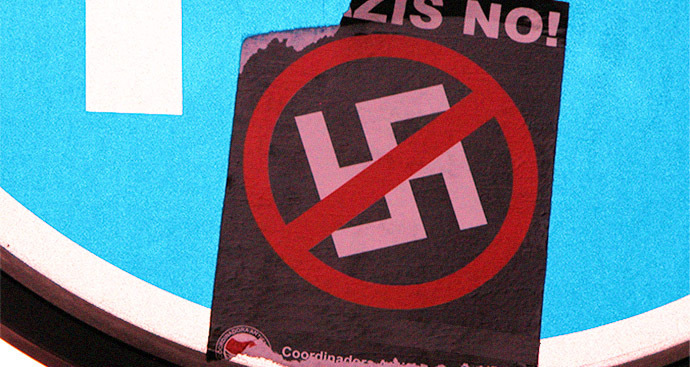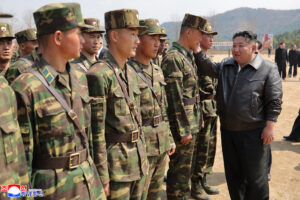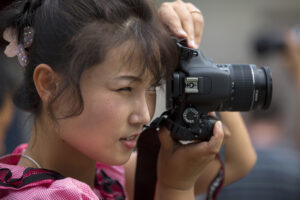Though North Korea is often labeled “communist” or even “Stalinist” by Western pundits, some German Neo-Nazis view the country in a different light. For these individuals, North Korea is a model for the German Neo-Nazi movement.
After the collapse of the Communist Bloc, North Korea appealed to Neo-Nazis, especially those from the former East Germany. These Neo-Nazis, having grown up under a socialist government, were more sympathetic to Pyongyang’s form of government. It also helped that North Korea withstood the collapse of the Soviet Union and did not reform like China. North Korea appeared to have a purer and more successful form of socialism because it expounded racial purity and ultra-nationalism. Subsequently, the Neo-Nazis which established the closest ties with Pyongyang came from the eastern associations of the National Democratic Party of Germany (NPD), one of the largest Neo-Nazi organizations in present-day Germany. Members of the Saxony NPD association even visited the North Korean embassy, located in Berlin, in 1998.
Though North Korea is often labeled “communist” or even “Stalinist” by Western pundits, some German Neo-Nazis view the country in a different light. For these individuals, North Korea is a model for the German Neo-Nazi movement.
After the collapse of the Communist Bloc, North Korea appealed to Neo-Nazis, especially those from the former East Germany. These Neo-Nazis, having grown up under a socialist government, were more sympathetic to Pyongyang’s form of government. It also helped that North Korea withstood the collapse of the Soviet Union and did not reform like China. North Korea appeared to have a purer and more successful form of socialism because it expounded racial purity and ultra-nationalism. Subsequently, the Neo-Nazis which established the closest ties with Pyongyang came from the eastern associations of the National Democratic Party of Germany (NPD), one of the largest Neo-Nazi organizations in present-day Germany. Members of the Saxony NPD association even visited the North Korean embassy, located in Berlin, in 1998.
Try unlimited access
Only $1 for four weeks
-
Unlimited access to all of NK News: reporting, investigations, analysis
-
Year-one discount if you continue past $1 trial period
-
The NK News Daily Update, an email newsletter to keep you in the loop
-
Searchable archive of all content, photo galleries, special columns
-
Contact NK News reporters with tips or requests for reporting
Get unlimited access to all NK News content, including original reporting, investigations, and analyses by our team of DPRK experts.
Subscribe
now
All major cards accepted. No commitments – you can cancel any time.










